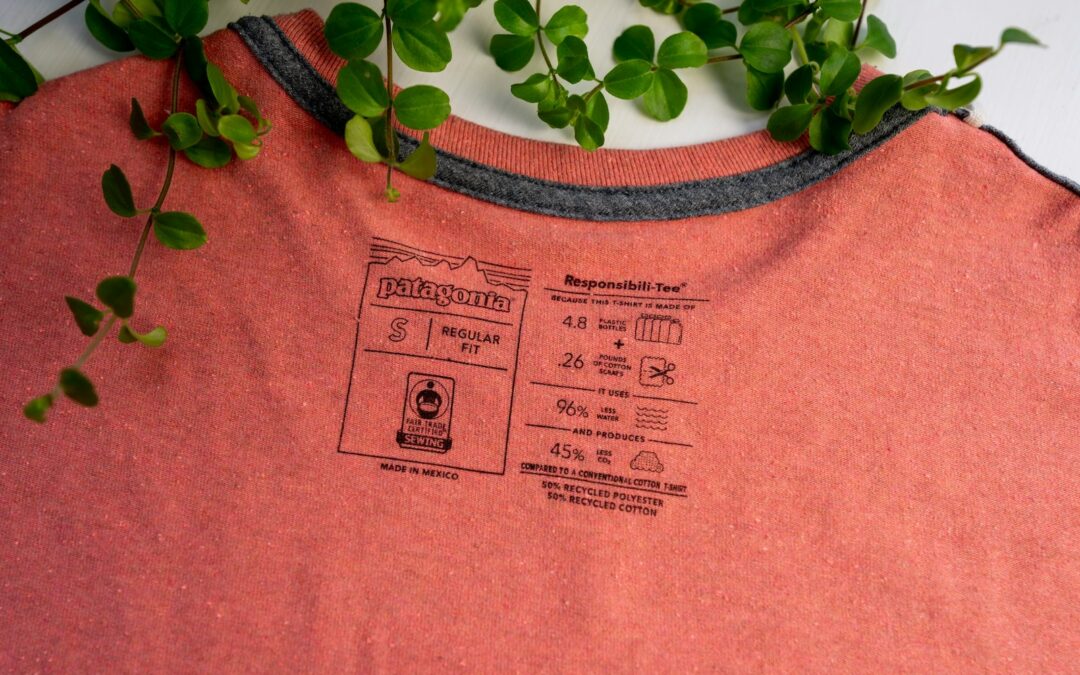
Exploring the Benefits and Risks
Veganism is a lifestyle choice that has been gaining popularity in recent years. It involves abstaining from the consumption of animal products, including meat, dairy, and eggs. While some people choose to go vegan for ethical reasons, others do it for health reasons. In fact, studies have shown that a well-planned vegan diet can offer a range of health benefits.
One of the main health benefits of a vegan diet is a reduced risk of chronic diseases such as cardiovascular disease, type 2 diabetes, and certain types of cancer. This is because a plant-based diet is typically lower in saturated fat and cholesterol and higher in fiber and other beneficial nutrients. In addition, a vegan diet can also help with weight management, as plant-based foods are generally lower in calories than animal products.
However, it is important to note that a vegan diet can also lead to certain nutritional deficiencies if not properly planned. For example, vegans may be at risk of not getting enough vitamin B12, which is primarily found in animal products. Therefore, it is important to work with a healthcare professional or registered dietitian to ensure that a vegan diet is nutritionally balanced.
Understanding Veganism
Veganism is a way of life that seeks to exclude all forms of exploitation and cruelty to animals for food, clothing, or any other purpose. A vegan diet is a plant-based diet that excludes all animal products such as meat, dairy, eggs, and honey. Veganism is not just a diet, but a philosophy that extends to all aspects of life, including clothing, cosmetics, and entertainment.
There are various reasons why people choose to adopt a vegan lifestyle. Some do it for ethical reasons, believing that it is wrong to exploit and harm animals for human benefit. Others do it for environmental reasons, as animal agriculture is a significant contributor to greenhouse gas emissions, deforestation, and water pollution. Additionally, some people adopt a vegan diet for health reasons, as research has shown that a plant-based diet can have numerous health benefits.
Vegan diets can be healthy if they are planned correctly and include a variety of nutrient-dense plant foods. A well-planned vegan diet can provide all the necessary nutrients, including protein, iron, calcium, and vitamin B12. However, vegans need to pay attention to their intake of certain nutrients, such as vitamin B12, which is primarily found in animal products.
It is important to note that not all plant-based diets are vegan, as some may include small amounts of animal products. Additionally, not all vegan diets are healthy, as some may rely heavily on processed foods and lack essential nutrients.
Overall, veganism is a lifestyle that seeks to promote compassion, sustainability, and health. While it may not be suitable for everyone, it is a viable option for those who wish to reduce their impact on the environment, promote animal welfare, and improve their overall health.
Nutritional Value of a Vegan Diet
A vegan diet can provide all the necessary nutrients for a healthy lifestyle. It is important to ensure that the diet is well-planned to meet all the nutritional requirements of the body.
Macronutrients
Macronutrients are the nutrients that the body needs in large quantities. A well-planned vegan diet can provide all three macronutrients: protein, fat, and carbohydrates.
Protein
Protein is essential for building and repairing tissues in the body. Plant-based protein sources include legumes, nuts, seeds, and soy products. It is important to consume a variety of protein sources to ensure that the body gets all the necessary amino acids.
Fat
Fat is important for energy production and the absorption of fat-soluble vitamins. Plant-based fat sources include nuts, seeds, avocado, and oils. It is important to choose healthy sources of fat, such as monounsaturated and polyunsaturated fats, to maintain a healthy diet.
Carbohydrates
Carbohydrates provide energy for the body. Plant-based carbohydrate sources include fruits, vegetables, whole grains, and legumes. It is important to choose complex carbohydrates, such as whole grains, to maintain stable blood sugar levels.
Micronutrients
Micronutrients are the nutrients that the body needs in small quantities. A well-planned vegan diet can provide all necessary micronutrients, but some may require supplementation.
Vitamins
Vitamin D is essential for bone health and can be obtained from sunlight or fortified foods. Vitamin B12 is necessary for nerve function and can be obtained from fortified foods or supplements.
Minerals
Calcium is important for bone health and can be obtained from fortified plant-based milks, tofu, and leafy greens. Iron is necessary for oxygen transport and can be obtained from legumes, whole grains, and leafy greens. Zinc is important for immune function and can be obtained from legumes, nuts, and seeds. Iodine is necessary for thyroid function and can be obtained from iodized salt or seaweed. Selenium is important for immune function and can be obtained from nuts, seeds, and whole grains.
In conclusion, a well-planned vegan diet can provide all necessary macronutrients and micronutrients for a healthy lifestyle. It is important to ensure that the diet is varied and includes a range of protein sources to meet all nutritional requirements. Supplementation may be necessary for certain micronutrients.
Common Vegan Foods
Veganism is a lifestyle that involves avoiding the consumption of animal products. It is a diet that is centered around plant-based foods such as fruits, vegetables, legumes, grains, nuts, and seeds. Here are some common vegan foods that are rich in nutrients and can be included in a vegan diet.
Fruits and Vegetables
Fruits and vegetables are rich in vitamins, minerals, and fiber. They are essential components of a healthy vegan diet. Some of the most common fruits and vegetables that are consumed by vegans include apples, bananas, oranges, berries, grapes, broccoli, cauliflower, kale, spinach, and carrots.
Legumes and Grains
Legumes and grains are excellent sources of protein, fiber, and carbohydrates. Some of the most common legumes that are consumed by vegans include lentils, beans, chickpeas, and peas. Whole grains such as quinoa, brown rice, and oats are also popular among vegans.
Nuts and Seeds
Nuts and seeds are rich in healthy fats, protein, and fiber. Some of the most common nuts and seeds that are consumed by vegans include almonds, cashews, walnuts, chia seeds, and flax seeds.
Plant-Based Proteins
Plant-based proteins are essential for vegans to meet their daily protein requirements. Some of the most common plant-based proteins that are consumed by vegans include tofu, tempeh, seitan, and nutritional yeast.
In conclusion, a vegan diet can be healthy and nutritious if it is well-planned and includes a variety of plant-based foods. By including fruits, vegetables, legumes, grains, nuts, and seeds in their diet, vegans can meet their daily nutrient requirements and maintain good health.
Health Benefits of Veganism
Veganism is a diet that excludes all animal products, including meat, dairy, and eggs. This dietary choice has been associated with numerous health benefits, including a reduced risk of heart disease, type 2 diabetes, and certain cancers.
Heart Health
One of the primary benefits of a vegan diet is improved heart health. Studies have shown that vegans have a lower risk of developing heart disease than non-vegans. This is because a vegan diet is typically lower in saturated fat and cholesterol, which are both linked to heart disease. Additionally, a vegan diet is often higher in fiber, which can help lower cholesterol levels and reduce the risk of heart disease.
Diabetes Prevention
Another benefit of a vegan diet is a reduced risk of type 2 diabetes. Studies have shown that vegans have a lower risk of developing type 2 diabetes than non-vegans. This is because a vegan diet is typically lower in fat and higher in fiber, which can help regulate blood sugar levels and improve insulin sensitivity.
Cancer Risk Reduction
A vegan diet has also been linked to a reduced risk of certain types of cancer, including breast, colon, and prostate cancer. This is because a vegan diet is typically higher in fiber and lower in fat than a non-vegan diet. Additionally, a vegan diet is often rich in antioxidants, which can help protect against cancer.
Weight Management
Finally, a vegan diet can also be an effective tool for weight management. Studies have shown that vegans tend to have a lower body mass index (BMI) than non-vegans. This is because a vegan diet is typically lower in calories and higher in fiber than a non-vegan diet. Additionally, a vegan diet can help promote healthy weight loss and reduce the risk of obesity-related health problems.
In summary, a vegan diet can provide numerous health benefits, including improved heart health, reduced risk of type 2 diabetes and certain cancers, and effective weight management.
Challenges and Considerations in Veganism
Veganism is a lifestyle choice that can provide many health benefits, but it also comes with its own set of challenges and considerations. Here are some important factors to keep in mind when following a vegan diet:
Nutrient Deficiencies
One of the biggest concerns with a vegan diet is the risk of nutrient deficiencies. Since vegans avoid all animal products, they may not get enough of certain nutrients that are primarily found in these foods, such as vitamin B12, vitamin D, and omega-3 fatty acids.
To mitigate this risk, vegans should consider taking supplements or eating fortified foods to ensure they are getting enough of these vital nutrients. For example, many plant-based milks and cereals are fortified with vitamin B12 and vitamin D.
Pregnancy and Veganism
Pregnancy is a time when proper nutrition is especially important, and vegans may need to take extra care to ensure they are getting all the nutrients they need to support a healthy pregnancy. For example, pregnant women who follow a vegan diet may need to take supplements of vitamin B12, iron, and calcium to ensure they and their baby are getting enough of these nutrients.
It’s also important for pregnant women to get enough protein, which can be a challenge on a vegan diet. However, there are many plant-based sources of protein, such as beans, lentils, tofu, and quinoa.
Vegan Junk Food
While a vegan diet can be very healthy, it’s also possible to eat a lot of unhealthy junk food on a vegan diet. Many processed vegan foods are high in sugar, salt, and unhealthy fats, which can lead to weight gain and other health problems.
To avoid this, vegans should focus on eating whole, minimally processed foods, such as fruits, vegetables, whole grains, and legumes. They can also experiment with healthy vegan cooking and baking to create delicious and nutritious meals and snacks.
In summary, while a vegan diet can provide many health benefits, it’s important to be aware of the potential challenges and considerations. By taking steps to ensure adequate nutrient intake, getting enough protein during pregnancy, and avoiding junk food, vegans can enjoy a healthy and fulfilling lifestyle.
Environmental Impact of Veganism
Veganism presents an opportunity to reduce the negative impact of food production on the environment. According to a report by the United Nations, animal agriculture is responsible for 14.5% of global greenhouse gas emissions, more than the entire transportation sector. By avoiding animal products, vegans can significantly reduce their carbon footprint and contribute to a more sustainable future.
In addition to reducing greenhouse gas emissions, veganism can also help conserve water resources. Animal agriculture is a water-intensive industry, with some estimates suggesting that it takes up to 2,500 gallons of water to produce a single pound of beef. Plant-based diets, on the other hand, require significantly less water to produce the same amount of food.
Furthermore, the production of animal products contributes to deforestation and soil degradation. The clearing of forests for grazing land and feed crops destroys natural habitats and reduces biodiversity. The use of chemical fertilizers and pesticides in animal feed crops can also lead to soil degradation and water pollution.
By avoiding animal products, vegans can help reduce the negative impact of food production on the environment. However, it is important to note that not all vegan diets are created equal. Some vegan diets may rely heavily on processed foods, which can have a negative impact on both health and the environment. It is important for vegans to prioritize whole, plant-based foods and to choose sustainably sourced products whenever possible.
Transitioning to a Vegan Diet
Transitioning to a vegan diet can be challenging for some people, but it doesn’t have to be. There are several ways to make the transition easier and more sustainable.
Importance of Mindset
First and foremost, it’s important to have the right mindset when transitioning to a vegan diet. This means approaching the change with an open mind and a willingness to learn. It’s also important to understand why you’re making the change. Whether it’s for health reasons, animal welfare, or the environment, having a clear understanding of your motivations can help you stay committed to your new lifestyle.
Three Different Approaches
There are three different approaches to transitioning to a vegan diet: cold turkey, gradual, and flexitarian. Cold turkey involves making the switch all at once, while gradual involves slowly phasing out animal products. Flexitarian involves incorporating more plant-based meals into your diet while still allowing for occasional animal products. Each approach has its pros and cons, and it’s up to the individual to decide which one works best for them.
How to Prepare Vegan Meals
Preparing vegan meals can be simple and delicious. A good place to start is by finding vegan recipes online or in cookbooks. It’s important to make sure you’re getting all the necessary nutrients, such as protein, iron, calcium, and vitamin B12. This can be achieved by incorporating a variety of plant-based foods into your diet, such as legumes, nuts, seeds, whole grains, fruits, and vegetables.
Balancing Health and Comfort
It’s important to balance health and comfort when transitioning to a vegan diet. This means finding vegan alternatives to your favorite non-vegan foods, such as vegan cheese, meat substitutes, and dairy-free ice cream. It’s also important to listen to your body and make adjustments as needed. If you’re feeling tired or sluggish, you may need to incorporate more protein or iron into your diet.
Tips for Eating Out
Eating out can be challenging for new vegans, but it doesn’t have to be. Many restaurants now offer vegan options, and it’s always a good idea to call ahead and ask about their menu. It’s also helpful to research vegan-friendly restaurants in your area. When in doubt, opt for dishes that are heavy on vegetables and grains.
Support
Having a support system can make all the difference when transitioning to a vegan diet. This can include friends, family, or online communities. It’s also helpful to find a vegan mentor or coach who can answer your questions and provide guidance.
Overall, transitioning to a vegan diet can be a positive and rewarding experience. With the right mindset, approach, and support, anyone can make the switch to a plant-based lifestyle.
Conclusion
In conclusion, while veganism has been associated with some adverse health outcomes, such as nervous, skeletal, and immune system impairments, hematological disorders, and vitamin and mineral deficiencies, several studies have shown that a vegan diet decreases the risk of cardiometabolic diseases, such as cardiovascular disease, type 2 diabetes mellitus, obesity, and non-alcoholic fatty liver disease.
Evidence weakly demonstrates associations between vegan diets and risk of CVDs, with the direction of associations varying with the specific CVD outcome tested. However, more high-quality research on this topic is needed.
The choice of adopting a vegetarian diet could have positive outcomes, such as better physical health, positive feelings related to the adoption of a morally correct attitude, an increased sense of belonging to a vegetarian community, and lower environmental impact.
Overall, a balanced vegan diet can be a healthy and sustainable choice for many individuals. However, it is important to ensure that the diet is nutritionally adequate and includes a variety of foods to prevent deficiencies. It is recommended to consult a healthcare professional or registered dietitian before making any significant dietary changes.







